Nottingham Forest Ladies: The reality of women's football
- Published
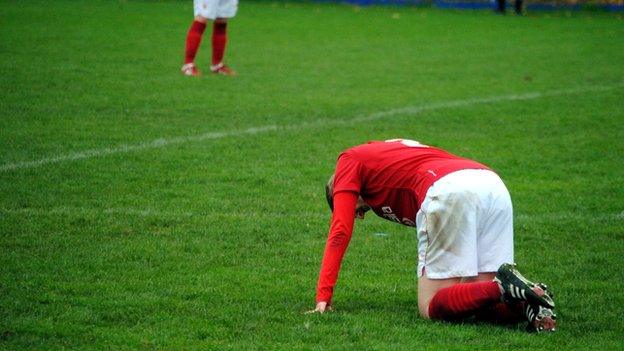
Women's football has come a long way since legendary Derby and Forest manager Brian Clough said he liked his women to be feminine - not "sliding into tackles, and covered in mud".
With 70,000 people cramming into Wembley to watch Team GB's women defeat Brazil during London 2012 - and with The FA's new five-year plan for the women's game - the sport believes it is moving in the right direction and away from old-fashioned views.
But despite the optimism, those on the ground know there are challenges ahead if they are to capitalise on the current interest in their sport.
Nottingham Forest Ladies know all about the harsh realities. They play in the Premier League North Division - the third and lowest tier of the women's national game in England.
The management, coaching staff and players are all volunteers who have day jobs.
That is in stark contrast to the third tier of men's football, League One.
A footballer in League One will on average earn about £85,000 a year, according to figures from the FA.
It's something that annoys Jemma Connor-Iommi, a manager at a school - and first-team captain of Forest Ladies.
"I'm the captain of a massive club like Forest, I'm a Republic of Ireland international, and I still have to have a day job," said the 27-year-old.
"It is frustrating but it's one of those things. Hopefully the next generation of female footballers will be able to live the lives the males are living. That's my hope for the future."
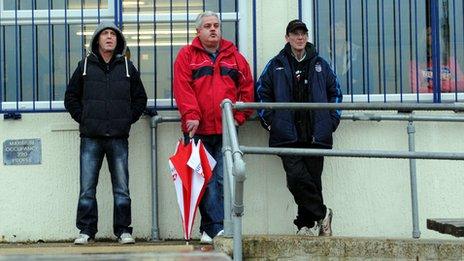
On average Forest Ladies get between 100 and 200 people watching their games
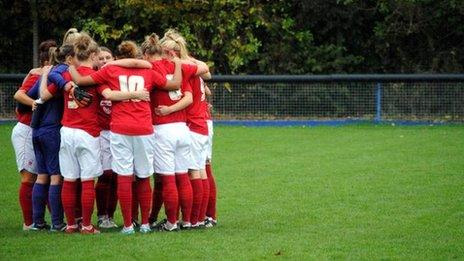
All the players are unpaid and most have jobs or are students
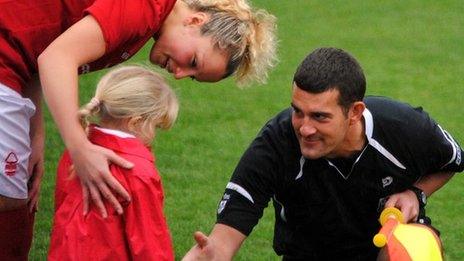
The club is keen to coach new players from an early age and has started attracting youngsters under the age of nine
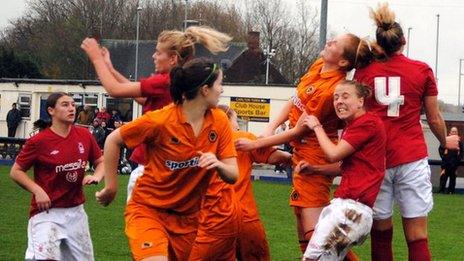
The new owners of Nottingham Forest have pledged to fund the women's team
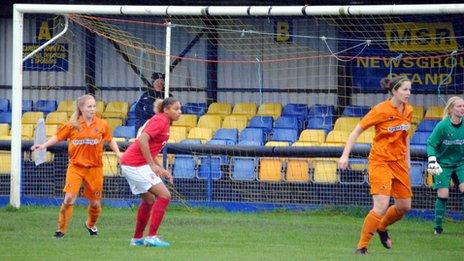
Forest Ladies play their football at non-league Carlton Town
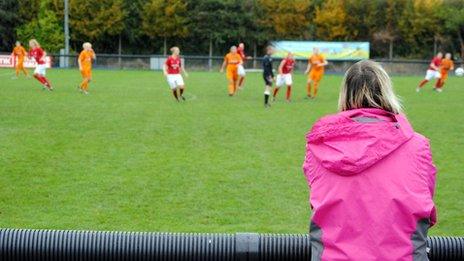
But they hope eventually to be able to play at Nottingham Forest's City Ground
Forest Ladies play their games at non-league Carlton Town.
The Stoke Lane ground, decorated in blue and yellow, is sandwiched between a sewage works and a busy loop road, five miles away from the City Ground, where Nottingham Forest's men play.
About 20,000 fans visit the men's stadium on matchdays but on average only between 100 and 200 supporters turn out for the women.
In October, the FA launched its document for the women's game which would see the Super League - the first tier of the sport - expanded and more money invested.
Kelly Simmons, the FA's head of the national game, said she wanted more men's clubs to get behind their women's teams, integrating their resources, stadiums, training facilities and coaching expertise.
Lisa Dawkins, Forest Ladies' director of football and a former player and team manager, has wanted this for a long time.
"It might be me dreaming but I can see the day when we'll hopefully share facilities to a reasonable level and get to play at the City Ground," she said.
"I've always thought that our football should be after the men's game on a Saturday."
Back in 1990, the self-confessed football fanatic responded to an advert in a Nottingham Forest vs Everton programme appealing for players for a new team.
'Cease to exist'
There had been a Forest Ladies team in various guises since the 1970s but this one would have the backing of the former two-time European champions.
"After about a year they pretty much left us to it and withdrew all the resources," said the 43-year-old. "We were left to fight for ourselves for quite a while."
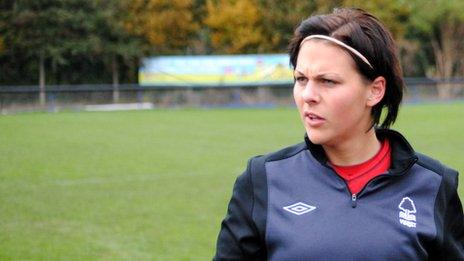
Jemma Connor-Iommi played in the US as an 18-year-old in 2003 and cannot support herself without having a job
Ms Dawkins said that while Clough might not have approved of them, he has remained an inspiration for her and the club.
"He wasn't really interested [in us]," she said. "[But] I still dedicated one of our wins to Cloughie, regardless of whether or not he liked to see women on a football pitch."
The fight for survival has continued ever since.
Ms Dawkins, who also works for Nottingham City Council, was watching Team GB's 1-0 win over Brazil in July, when she dropped a bombshell.
"I tweeted that Forest ladies would cease to exist if it didn't raise £10,000 in cash very quickly," she said.
Nottingham Forest had just been taken over by the Kuwaiti-based Al Hasawi family, who promised to put significant investment into the men's team but said nothing about the women.
Fans rallied round and persuaded the millionaire backers to stump up the shortfall so the team could continue playing.
Omar Al Hasawi, Nottingham Forest's chairman, insisted the women footballers were part of the club and said he was committed to funding the team.
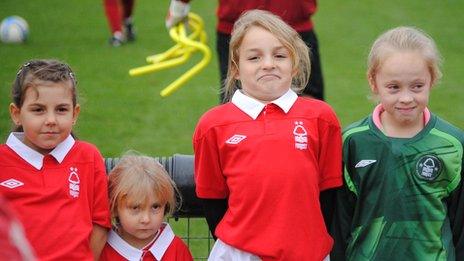
For the first time this season Nottingham Forest Ladies have an under-9s team
One of the family's firms also became the shirt sponsor.
At the moment, there are plenty of positives for Forest Ladies, and for the first time they have an under-9s team - a consequence of the club's community work and London 2012.
"The new owners are just finding their feet at the moment," said Ms Dawkins. "But I think we can go on and build a fantastic partnership with them.
"Women's football needs to ride on the legacy of the Olympics - I'm watching closely to see how the game develops from here."